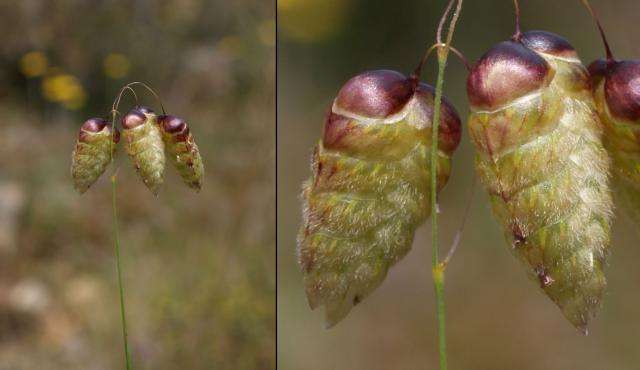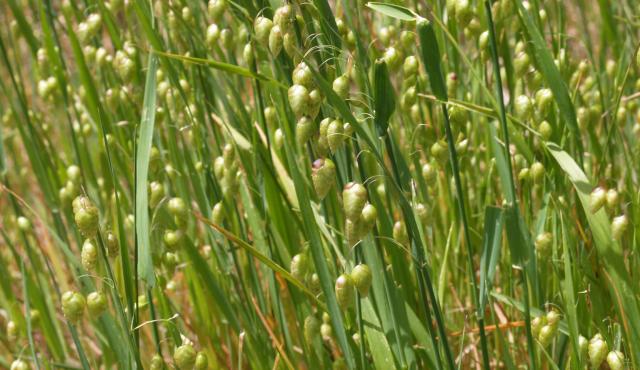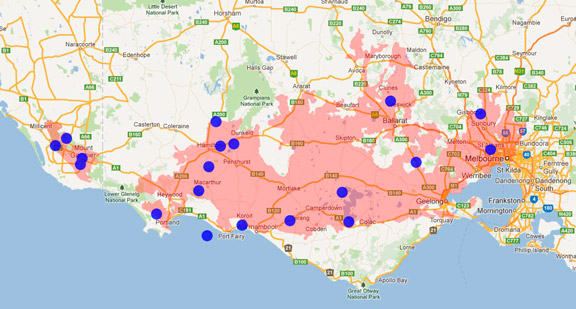A range of teacher professional learning programs will be developed to accompany the Biodiversity of the Western Volcanic Plains online outreach...


Large Quaking-grass
Briza maxima
Annual. Very common and invasive introduced weed that can displace native orchids and herbs within a few years. The seeds become abundant in the soil and can regenerate profusely after autumn burning.
| Details | Description |
| Type | Graminoid |
| Group | Grass |
| Identifying Characteristics | |
| Distinctive Features | Briza maxima is larger than Briza minor. The flower/seed clusters (spikelets) distinguish them from each other. Briza maxima has fewer, larger flower/seed heads than Briza minor. Briza maxima spikelets are 10-20 mm in length, while those of Briza minor are only 4-5 mm long. |
| Life Form Group | Graminoid |
| Life Form Codes | Medium to Small Tufted Graminoid (MTG) |
| EVC types | EVC 132_61: Heavier-soils Plains Grassland EVC 132_62: Lighter-soils Plains Grassland EVC 132_63: Low-rainfall Plains Grassland EVC 175: Grassy Woodland EVC 55_61: Plains Grassy Woodland EVC 55_63: Higher Rainfall Plains Grassy Woodland EVC 649: Stony Knoll Shrubland EVC 68: Creekline Grassy Woodland EVC 803: Plains Woodland |
| Native Status | Introduced |
| Weed Status Invasiveness | High INVASIVE |
| Weed Status Impact | Low IMPACT |
| Taxonomy | |
| Phylum | Charophyta |
| Class | Equisetopsida |
| Order | Poales |
| Family | Poaceae |
| Genus | Briza |
| Species | maxima |

Distribution maps indicate current and historic locations where species have been sighted.
Source: Atlas of Living Australia
| Endangered Status | |
| DEPI Advisory List | Not listed |
| FFG Act | Not listed |
| EPBC Act | Not listed |
The conservation status of species is listed within Victoria and Australia.
The Department of Environment and Primary Industry (DEPI) Advisory List consists of non-statutory advisory lists of rare or threatened flora and fauna within Victoria.
The Flora and Fauna Guarantee Act 1988 (FFG Act) lists threatened species in Victoria. Under the Act, an Action Statement is produced for each listed species.
The Environment Protection and Biodiversity Conservation Act 1999 (EPBC Act) is the Australian Government’s key piece of environmental legislation, listing nationally threatened native species and ecological communities.



